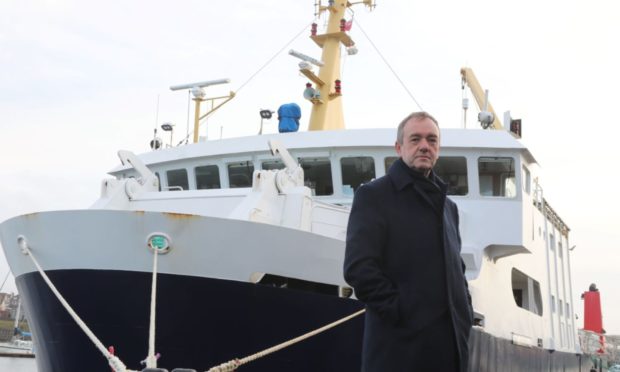The leader of Orkney Council is hopeful the island will receive support from the Scottish Government to become fully carbon neutral by 2040.
Islands Secretary Mairi Gougeon announced on Monday, September 6 that at least three of Scotland’s islands will become fully carbon neutral by 2040.
The new Carbon Neutral Islands project will help to deliver key commitments in the National Islands Plan and create jobs.
It will also protect island environments from climate change while contributing to the Scottish Government’s 2045 net zero commitment.
The islands to take part in the project have not yet been identified by the Scottish Government.
Speaking on BBC’s Good Morning Scotland, council leader James Stockan explained what being chosen would mean for Orkney.
Mr Stockan said that being involved in the project would support efforts the island is already making with renewable energy.
He said: “For Orkney, particularly, it would be a support in what we have been doing for quite a long time, because we’ve been in the space looking at renewable energy, looking at things that can be done and experimenting with adaptions here.
“We need to make absolutely sure that we get support for the infrastructure required to get to Net Zero. It’s really important when we are building wind farms ourselves, that the support comes through, that we can actually generate electricity as well as converting the economy from a carbon one to a green one.”
Islands need government support to become carbon neutral
The council leader went on to explain that islands are “some of the worst places” for carbon footprint because residents use ferries and planes.
The communities are remote and rural and often experience fuel poverty alongside a higher wind-chill.
Island industries like farming and fishing are also carbon intensive, as well as distilling.
He believes that despite it being more challenging for islands to become carbon neutral there are many things that can be done quickly and effectively with support from the government.
Mr Stockan said: “We have been investigating in Orkney for years from university work to the small things we’ve already done like the production of hydrogen and seeing how we convert that.
“We’ve got many ideas and we have a route map that we can do the big challenge that we’ve had so far is a lot of government regulation and things like that.”
The council has a windfarm plan that comes solely from funding because they need a cable to go to the island. It is hoped in the future they can connect wave and tide.
They also want to convert energy gathered from natural resources so they can run heavier machines such as ships and HGV lorries.
Mr Stockan commented: “We need support from government to get into that space and to get that done.
“What we’ve seen in the pandemic when there was a real crisis that things happened quicker.
“So my kind of mantra at the moment is that we have to think smarter, we have to act quicker and we have to deliver sooner. That’s the climate change imperative.”
